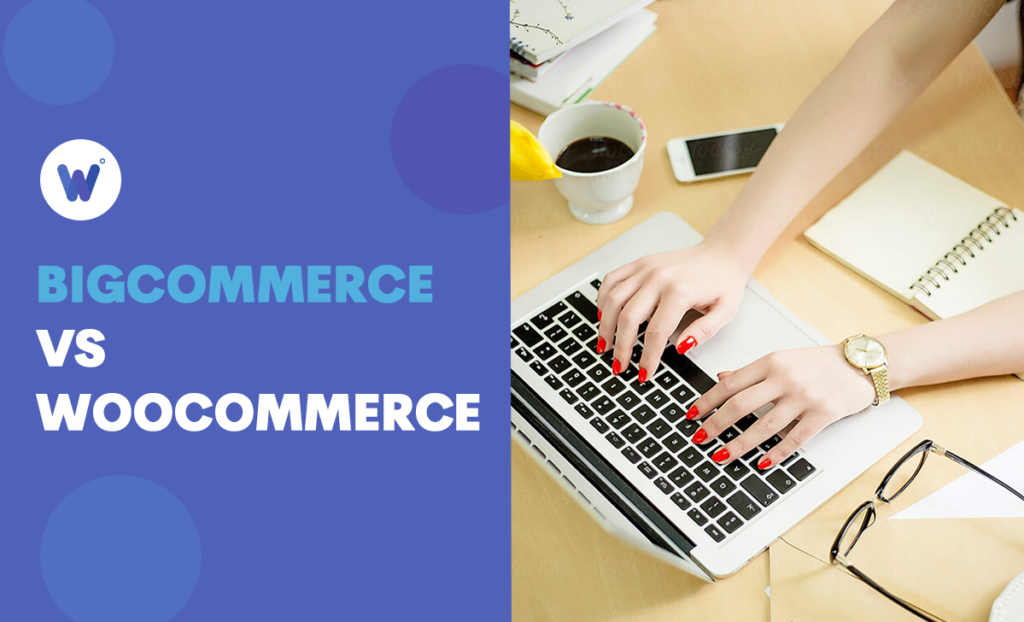
If you’re starting an online store, the most likely question that’s troubling you is finding the right e-commerce platform. After all, it needs to provide you with good marketing tools, a venue for social media outreach, and help you establish a reliable payment gateway.
Perhaps you’ve heard about Magento open source or that hefty Shopify payment a rival company had and want to get in the race on even footing?
Searching for your ideal e-commerce platform, you’ve likely encountered BigCommerce and the WooCommerce WordPress plugin. But how do you choose between these two giants?
In this article, we’ll give you a breakdown of the essential traits of each online store platform, compare their pricing plans, and more.
Effortlessly export your Google Docs to WordPress with just 1-click.
Get Started TodayEither platform can help your e-commerce store take off. Here’s an overview of their elemental features to serve as a basis for further consideration.
What It Offers
BigCommerce is an e-commerce solution that has worked for around 100,000 customers. It’s a website builder that helps you create an e-commerce site and start your own BigCommerce store. You’ll also get site-management and sales support, as well as some online guidelines.
How Much Does It Cost?
The hosted e-commerce platform comes in four pricing plans, charged annually: Standard, Plus, Pro, and Enterprise.

What It Offers
WooCommerce platform is a WordPress plugin that can help transform your WordPress website into a real e-commerce website. The open-source platform is perfect for launching an online store from your existing site, using the WordPress CMS.
How Much Does It Cost?
As a WordPress plugin, this e-commerce platform comes free of charge. However, that doesn’t mean setting up your online store through it will cost you nothing at all.
First, you’ll need to purchase an additional WooCommerce theme for about $20 to $100. Then, you’ll want to buy an SSL certificate, and finally, since WooCommerce isn’t a self-hosted platform, you’ll need to secure a hosting provider.
It’s worth mentioning, though, that the overall monthly cost for running the plugin should still be lower than the competitor’s price, and you’ll get a fully functional WooCommerce website.

Ecommerce functionality is all about how well your online store is set up. Here, we’ll take a look at the most critical functions each platform provides when it comes to customization, online store functionality, and platform support.
BigCommerce – Customization
When you decide on a BigCommerce theme, you’ll have a choice between 12 free and about 130 pricy premium options for your e-commerce store. However, each premium theme comes in variations that effectively bring the count up.
Customization is somewhat limited, but modifying the themes is very straightforward. All it takes is understanding the BigCommerce dashboard and several clicks, and your online store will become adorned with fresh new visuals.
WooCommerce – Customization
When it comes to the WooCommerce plugin, the platform allows for more customization. Every WordPress theme is available after a one-off purchase from the WooCommerce store, and there are 14 to choose from.
While you could view each template as a paid theme, it’s apparent the options are more affordable, and you can change the themes much more than is the case with the BigCommerce platform.
However, as a WordPress site plugin, the app can be challenging to manipulate without the right know-how and knowing your way around the WordPress dashboard.
One thing that makes it easier is that it’s hosted on a SaaS platform, so you’ll know what your WooCommerce extensions will look like.

BigCommerce – Online Store Functionality
If you’re looking for a BigCommerce plugin or an app, you might find the choice for your e-commerce store somewhat limited. That’s because most of the vital features are already built-in. This is also why their plugin and app store aren’t as extensive.
Still, you can find over 800 integrations on offer. On a different note, you could even install a BigCommerce WordPress plugin to your existing platform.
WooCommerce – Online Store Functionality
Powered by your WordPress site, the app heavily relies on having a plugin or an integration for every occasion. You can enrich your online store with as much additional functionality as you wish from third-party sources, which is why there are fewer built-in options within the e-commerce platform.
From controlling your ecommerce inventory and orders to optimizing product feeds, generating invoices, marketing to a wider audience, or even providing customer support. There are practically a sea of plugins that can enhance the functionality of your WooCommerce web store and help you drive business growth.
Performance marketing, for instance, becomes more accessible through specialized plugins that let you track clicks, sales, and sign-ups, allowing you to make data-driven decisions and maximize ROI.
In addition, the reliance on plugins and integrations for extending the functionality of your WooCommerce website underscores the importance of staying vigilant about updates.
By staying proactive with WooCommerce updates and ensuring that your plugins are up-to-date, you can maintain a stable and secure e-commerce platform that continues to meet the needs of your business and customers.
BigCommerce – Platform Support
How your e-commerce store platform supports payments is likely the crucial aspect of it, and BigCommerce delivers quite nicely on that front.
There’s support for many of the largest payment processors, such as PayPal and Square. Additionally, the included SSL certificate will make the transactions more reliable and secure.
WooCommerce – Platform Support
The WordPress website plugin has an impressive amount of supported payment services and payment gateways like Stripe. The complete list of supported gateways counts more than 100.

Let’s take a look at which platform is better suited for different-sized businesses:
WooCommerce. When it comes to pricing, there’s no competition here, which might be the ultimate factor for smaller companies.
WooCommerce or BigCommerce. With both services offering plenty of functionality, it might come down to personal preference.
WooCommerce. Although BigCommerce comes with its own hosting and SSL certificate, the overall impression is that WooCommerce is slightly better at the vital aspects.
While it might seem like one platform is better suited for most businesses, it actually comes down to nuances and details. Having learned the most important information about both, we’re confident you’ll be able to make the best choice for your business.